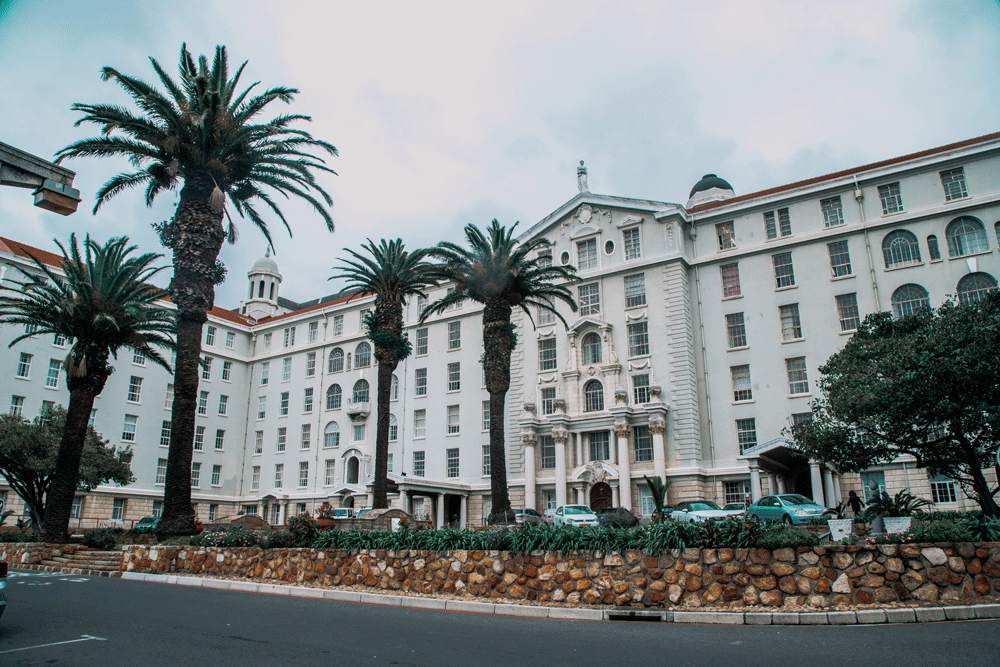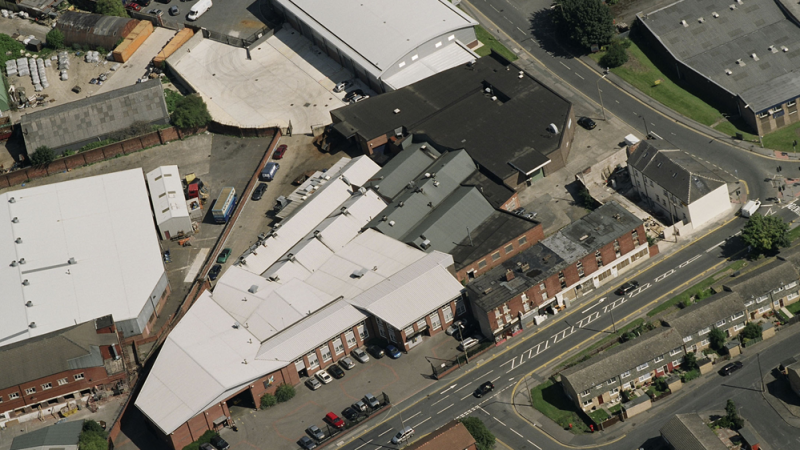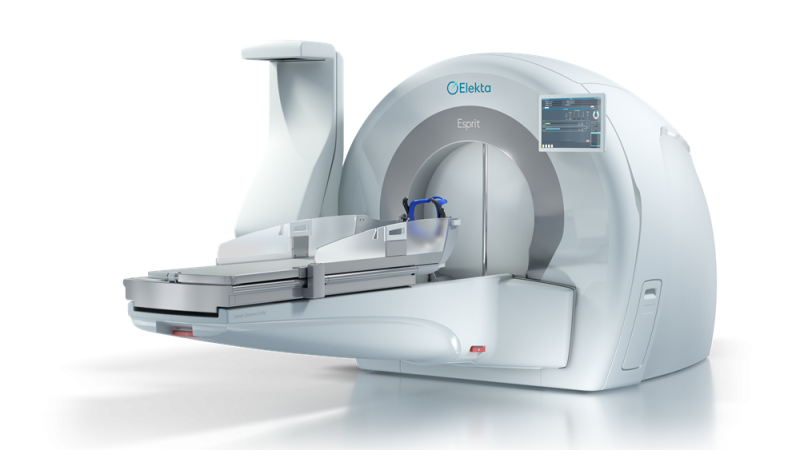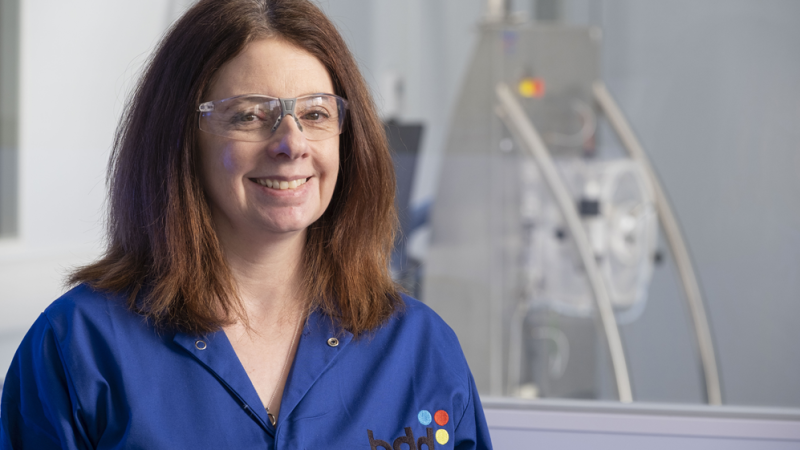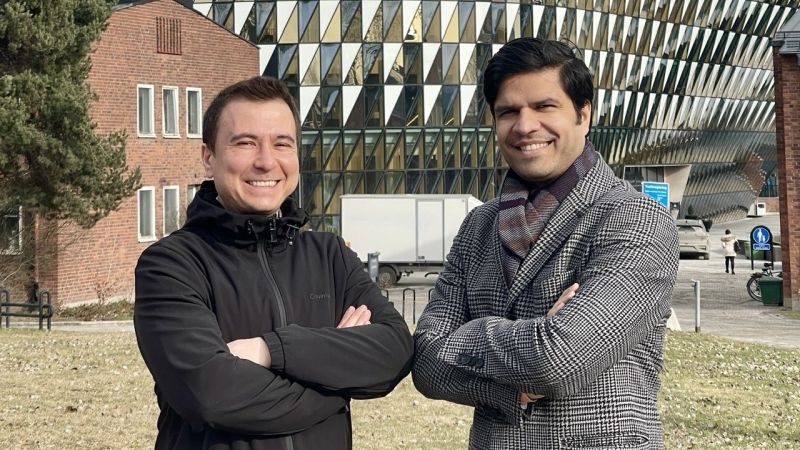Opened on 31 January 1938, Groote Schuur Hospital in Cape Town boasts a proud history of service excellence. Locally, the hospital is renowned as the training ground for some of South Africa’s best doctors, nurses and other health professionals. Internationally, Groote Schuur gained global fame when, in December 1967, a young University of Cape Town-educated surgeon named Christiaan Barnard completed the world’s first successful human heart transplant.
Throughout the earlier years of its existence, Groote Schuur was always known as the hospital of the people. As a government-funded teaching hospital, Groote Schuur is staffed by highly experienced individuals who can typically be seen mentoring medical school students from the University of Cape Town who are completing their training. The standard of care is therefore traditionally very high.
Today, the hospital is an internationally celebrated research institution, highly regarded for its clinical and teaching activities, as well as a major provider of healthcare in Western Cape and beyond. This position of Groote Shuur has remained unchanged despite the hurdles that the hospital is now facing as a result of the unprecedented developments of the last few years.
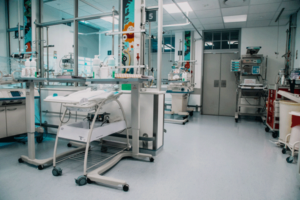 Redesigned model of care
Redesigned model of care
Dr Shaheem de Vries, the hospital’s new CEO, who assumed his role in February 2024, affirms that Groote Schuur Hospital has continued to face significant challenges following the Covid-19 pandemic.
“One of the consequences of Covid was the disruption to surgical services, creating a backlog of elective procedures. Initially, the hospital launched a campaign supported by donors and non-profit organisations to catch up on these surgeries, achieving remarkable success that exceeded expectations.”
“However, financial constraints have since intensified the burden. Over the last two years, the hospital’s budget was cut by 180 million Rand, with another 100 million cut this year. This pattern is expected to continue, resulting in a cumulative shortfall for the health department of nearly half a billion Rand over three years.”
“This has certainly had a major impact – with reduced funding, we have had to reduce staff numbers and restrict resources. This means that the backlog of operations has further increased and the added burden of Covid and its impact is now being shouldered by fewer resources.”
He explains that as a result, the hospital has had to rethink its operational model. Traditional cost-cutting methods – like reducing consumables or negotiating with vendors – are no longer sufficient to offset the gap in funds. Instead, Groote Schuur is redesigning its services and adopting a more ecosystem-focused approach.
“We have intensified our collaboration with public and private healthcare providers, academic institutions, and other facilities to sustain service delivery across the network. This approach also involves focusing on preventative medicine and primary healthcare to reduce the strain on tertiary services,” says de Vries. “To drive towards primary health care, we have to look at upstream aspects of social determinants, trying to look at violence prevention.”
Maximising impact
He affirms that despite these financial constraints, Groote Schuur continues to pursue advancements in medical technology and care delivery. For example, its Da Vinci robotic surgical system, a cutting-edge tool for minimally invasive procedures, continues to be used despite the cost.
“To be able to continue to use the latest technologies, Groote Schuur, again, has had to look at alternative approaches in these difficult times – we have established partnerships with vendors and private practitioners, to pool and combine capabilities to everyone’s benefit. For instance, the hospital acts as a training site for private doctors to gain proficiency in robotic surgery, benefiting both patients and the healthcare industry, creating win-win situations.”
“The providers win because the industry gets to showcase their technology, the practitioners can develop competency that later on could benefit their business. And, most importantly, patients get additional care or services that they otherwise would not have been able to access.”
He emphasises the importance of using limited resources strategically to maximize impact. This involves focusing on services that provide the best returns and investing in areas with long-term benefits. To this end, advancing primary healthcare and preventative measures aligns with the goal of reducing the overall burden on tertiary and quaternary services.
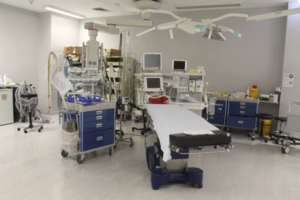 Preserving the legacy
Preserving the legacy
Dr Shaheem de Vries, who transitioned from emergency medical services to hospital management, brings a unique perspective to the role. With over two decades of experience in emergency care, he has a deep understanding of the healthcare ecosystem and its interconnected components.
“With my experience in healthcare management, the current challenges are not new to me. I also have to say that my predecessor, Dr Patel, created a phenomenal management team and instilled consistent leadership. So it’s been relatively easy to transition from EMS into a hospital environment, although the extent of responsibilities is, of course, much larger.”
Speaking about the position of the hospital within the country, he affirms that Groote Schuur Hospital is not only a medical institution but also a historic and symbolic site. The hospital houses the Heart of Cape Town Museum, commemorating the world’s first human heart transplant performed there.
Plans are underway to expand the museum to include other ground-breaking achievements and connect them with current endeavours in public health. This initiative aims to generate additional revenue and preserve the hospital’s rich legacy while engaging the public.
Looking ahead, he says that the hospital will aim to maintain its reputation for excellence in spite of financial limitations. “For the immediate future, I have very modest plans – to ensure that we still provide the same quality of care with a substantially reduced budget. We must ensure that we sustain the good reputation that the hospital has built over the years.”
Longer-term, Groote Schuur will seek to balance its historical significance with its role as a modern healthcare leader, fostering partnerships and exploring innovative solutions to ensure its continued success. “Groote Shuur is a symbol of health and hope for many not just in Western Cape but across the whole country. We have to make sure that we look after that symbol and continue to maintain that legacy despite the current challenges,” de Vries affirms in conclusion.
